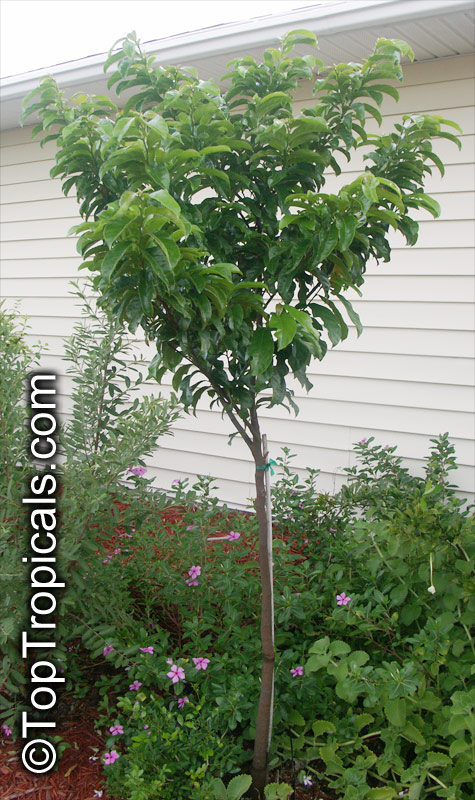Artocarpus hypargyreus - Kwai Muk
by Onika Amell
About the Author
Onika Amell was born in farmer's family in Cape Town, South Africa, and always had a keen interest in gardening. She has been a globe-trotter for many years, traveling along with her husband, an engineer, and her life is worth a novel. In Cape Town she worked in groups “Soil for Life and Work for Love”, teaching people how to grow their own food, improve their health, and protect the environment. Onika lived in Galilee, Israel, skydiving over 500 jumps and working on the fields planting, harvesting and caring for various crops (Lychee, Avocado, Bananas, etc), helping out in community gardens... In SE Asia, she taught English at business centers... Upon finally settling in SW Florida, she joined the ECHO Global Farms project on teaching farmers/families around the world about effective crop production... Now as a part of Top Tropicals Team, Onika is our plant expert and a columnist. Onika's biggest passions are plants and... of course – cats, who are her children! She has six of them: Itembi, Freddie Mercury, Donald Trump (he is the difficult one), Tigerlilly, Sweetie, and Jaxson.
Q: I have been hunting for a rare and exotic edible to grow on my property here in South Florida for some time now. I found an interesting tree called Kwai Muk while browsing your website. I do not have a lot of space left to plant but this tree seems to be smaller in size and also somewhat cold and wind tolerant which is a bonus as far as I am concerned. It also sounds like the fruit is exceptional. I would love to grow one. It is similar to Jackfruit?
A: Kwai Muk or Artocarpus hypargyraeus is a species of plant in the Moraceae family. It is a smaller fruited cousin of Jackfruit and Breadfruit. Some of the common names are Silver-back Artocarpus and Sweet Artocarpus. It is native to southern China, where it grows wild in Kwangtung Province, on Hainan Island, and in Hong Kong. It was introduced to Florida way back in 1927, but is still very unknown and few folks are growing it.
Kwai Muk should be planted more! This is a slender and very handsome tree with a beautiful dense and rounded canopy. It is relatively slow growing and will only reach about 20 to 25 feet in height which makes it perfect for small urban properties. Leaves are dark green and leathery and will stay on the tree throughout the year. It is well adapted to the soils and climate of Southern Florida. Small trees may get damaged by frost but mature trees will survive brief encounters with temperatures down to 25 degrees F. Kwai Muk is certainly not as cold sensitive as jackfruit or breadfruit. They are also quite wind resistant.
The piece de resistance of Kwai Muk is the excellent fruit it produces. Some people seem to think it is some of the weirdest looking fruit out there! This may be true, but what it lacks in appearance, it certainly makes up for in taste. It is called sometimes "the ugliest and yet the best tasting fruit". The creamy pulp is absolutely delicious and mostly eaten fresh. I have heard people say the flavor reminds them of mango, apricot, jackfruit, fig, quava and strawberry. Sweet and tangy loveliness with a hint of sherbet. The fruit looks like mini jackfruit on the inside but is about the size of a fig. The flesh inside also closely resembles jackfruit. It must be eaten only when completely ripe as unripe fruit will leak a white sticky latex when the skin is broken. The fruit also sun dries beautifully as it totally keeps the good texture and flavor. It is also excellent when preserved in syrup. Fruit ripens from August to October.
This beautiful and useful tree deserves to be grown more widely in Florida and greenhouses elsewhere. Mature trees have the capability of producing 2000 fruit or more in a year. Best grown in full sun but will tolerate partial shade. Prefers slightly acid sandy soil and good drainage.
RECOMMENDED FERTILIZERS:
Fruit Festival Plant Food - Super Crop Booster
Mango-Food - Smart Release Fruit Tree Booster
SUNSHINE-Honey - sugar booster
Eager to grow something delicious and rare? Come and get your Kwai Muk from our Garden Center or order one online!


